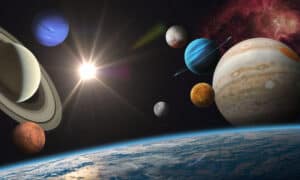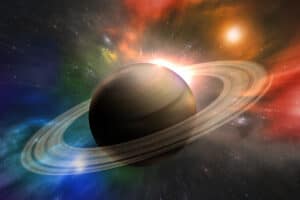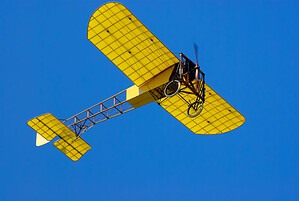You’ve likely seen pictures of the planets in our Solar System, but have you ever wondered what they smell like? If you went to another planet and took off your space helmet, you might melt, freeze, blow away, or implode before getting a good sniff.
However, each planet’s atmosphere has its own unique chemical composition. So, scientists were able to combine these chemicals in a lab to see what they smell like. And in all cases except Earth, that smell is pretty bad! But what is the worst-smelling planet? Join us for a tour of the eight planets to find out just what they smell like!

The solar system consists of the Sun, Mercury, Venus, Earth, Mars, Jupiter, Saturn, Uranus, and Neptune.
©19 STUDIO/Shutterstock.com
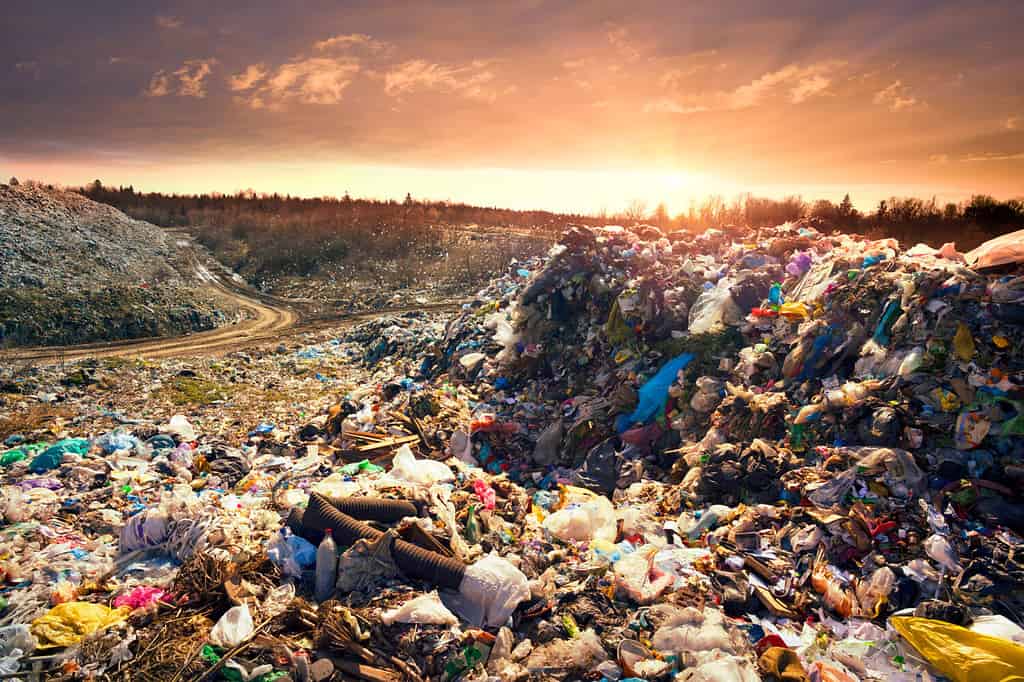
Earth doesn’t always smell amazing, so we can’t point too many fingers at our stinky cosmic neighbors.
©Roman Mikhailiuk/Shutterstock.com
Mercury
Mercury is the smallest planet in our solar neighborhood. It’s only a little bit larger than our Moon. It is also the closest planet to the Sun, which appears three times larger on Mercury and raises the surface temperature up to 800°F. That’s a huge contrast with nighttime lows of -290°F! Its atmosphere is made of oxygen, sodium, hydrogen, helium, and potassium, but because it is so thin, astronomers say you probably wouldn’t detect any smell at all. On the other hand, the Apollo astronauts who landed on Earth’s Moon said it smelled strongly of burnt gunpowder, which they smelled from the dust clinging to their suits as they were changing in the lunar lander. Scientists don’t understand exactly what caused this scent, but given the similarities between Mercury and the Moon, some think they might have similar chemicals.
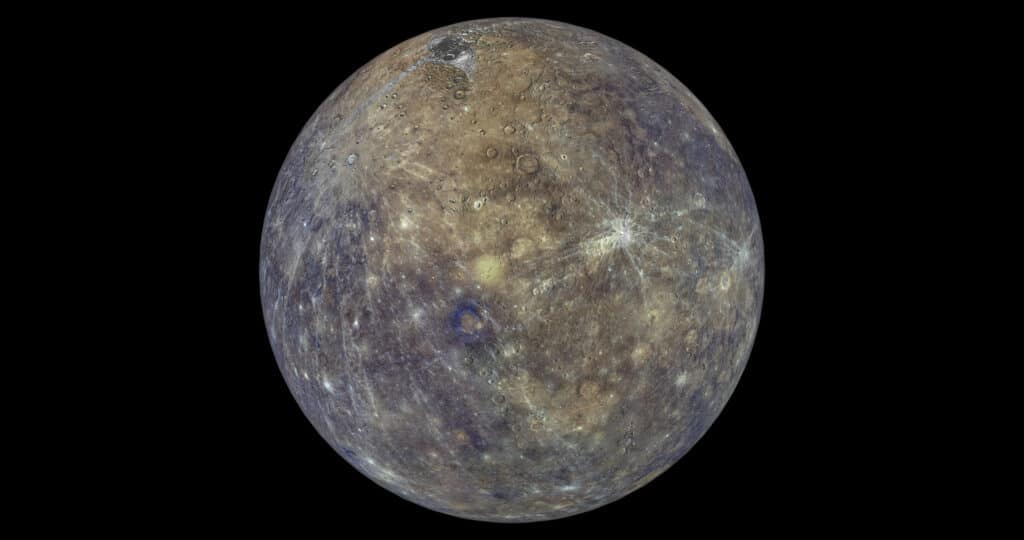
Mercury is a rocky planet like ours, peppered with craters from millennia of meteor impacts.
©iStock.com/FlashMyPixel
Venus
Venus often appears in the evening as the brightest orb in the sky besides our Moon. This brilliance has earned it the nickname “the Morning Star.” It’s pretty cool to view this glowing planet through a telescope. Venus is similar in size to Earth but has an important difference: Venus has an absolutely out-of-control greenhouse effect due to massive amounts of carbon dioxide and sulfuric acid in its atmosphere. This has jacked its surface temperatures up to 900°F, which is hot enough to melt lead!
Space probes that visit the surface have to send back their data quickly before they melt into puddles of metal. Carbon dioxide is odorless, but the sulfur in the atmosphere of Venus would remind you of rotten eggs or striking a match – appropriate for this hellscape of a world.
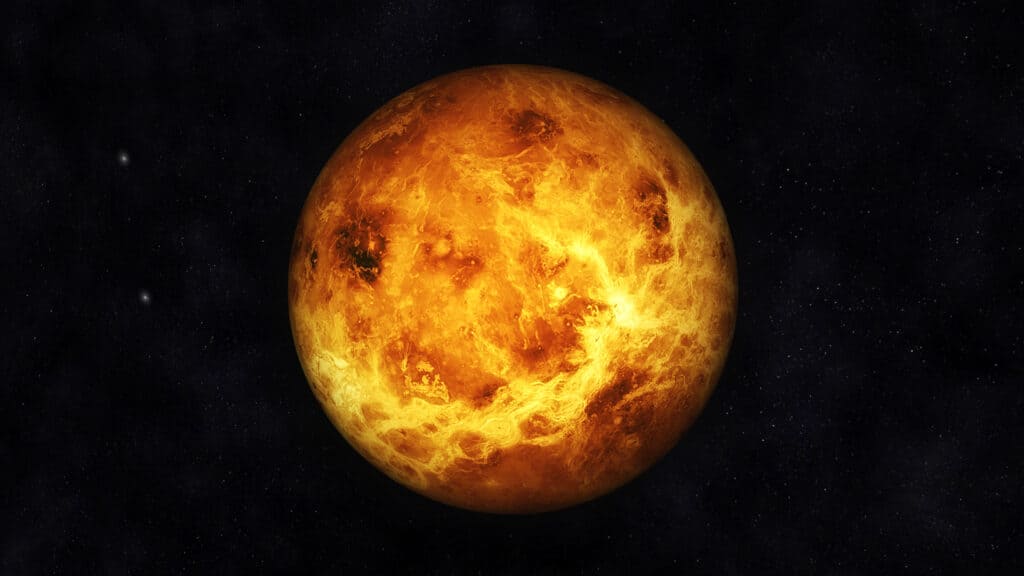
Venus’s atmosphere is mainly carbon dioxide and clouds of sulfuric acid rain down every day.
©iStock.com/3quarks
Earth
There’s a good argument to be made that Earth is the worst-smelling planet since all the elements we’ve detected on other planets are found here. Humans of all ages excel at stinking up their environment. You’re already well aware of what stinks on this planet, but here are some things you might not know about scents on Earth:
- Scent researchers have identified seven basic categories of smells: floral, fruity, minty, nutty, pungent, sweet, and woody.
- Recent studies show the human nose may be able to detect up to one trillion different scents!
- People have to smell to identify flavors. The brain integrates information from the taste buds and the nerves in the nose to identify flavors. If you close your eyes and hold your nose, you won’t have any idea what you are eating.
- Scent tests to determine which athletes smell the worst concluded hockey players are the stinkiest.
- It’s hard to determine the worst smell in the world. But a good candidate is a lab-produced scent called “U.S. Government Standard Bathroom Malodor” which was designed to smell like a military field latrine. It’s used to test the effectiveness of household cleaners.
- In 1889, an experiment in Germany with a chemical called thioacetone released a smell so bad it caused people for a half-mile in every direction to retch and run away in panic. The experiment has not been repeated since.
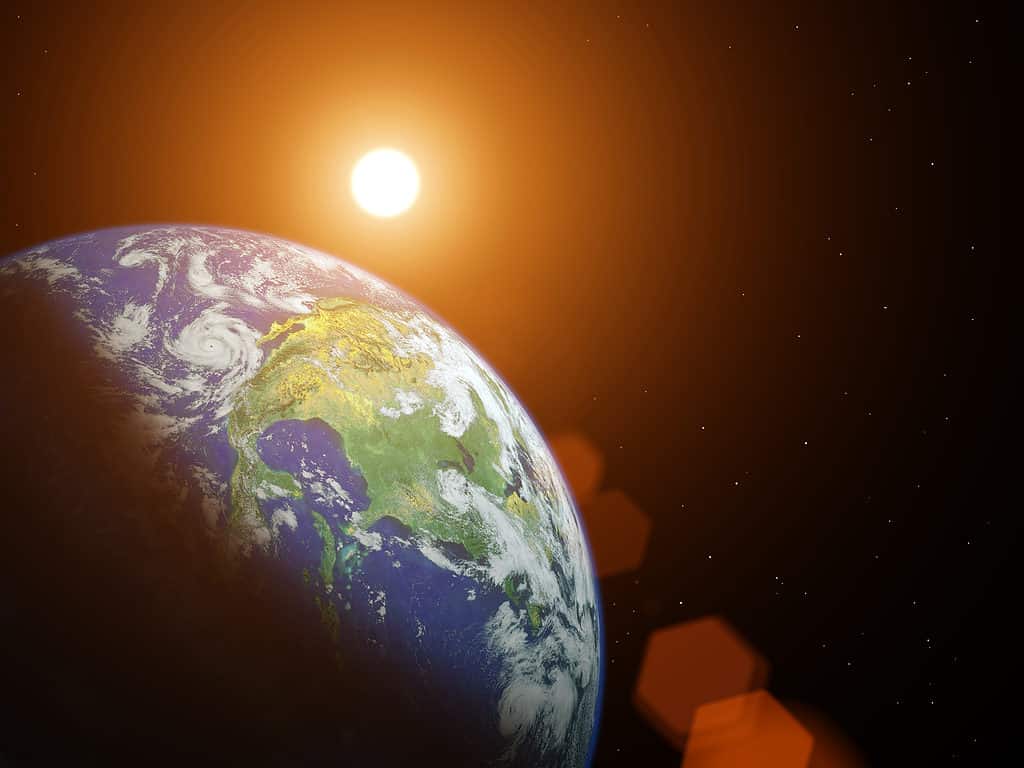
Earth is pretty but can also be pretty smelly.
©iStock.com/KingJC
Mars
Mars is one of Earth’s nearest planetary neighbors. It has a thin atmosphere that is mainly carbon dioxide, argon, nitrogen, and a little bit of oxygen and water vapor. Mars has two small moons, Phobos and Deimos. Researchers suggest the smell of Mars might include the sharp, biting, rotten egg scent of sulfur with some whiffs of a chalky, sweet smell. None of this sounds pleasant, but it would not make Mars the worst-smelling planet.
The smell of Mars is one of the most interesting to ponder, as it is the planet Earthlings will most likely colonize in the future. One of the big debates is whether to try to terraform the entire planet or to live permanently in sealed habitats with a breathable Earth-like atmosphere inside. Various proposals for thickening the atmosphere and increasing its oxygen content have been proposed. A part of that process would likely include adding hardy, genetically engineered lichens and other tundra plants to the surface. Plants exchange carbon dioxide for oxygen, so building up an increasingly diverse habitat for vegetation would slowly but surely change the composition of the atmosphere. Projects like this could help us learn to live on other worlds. It could also yield valuable technology, allowing us to reverse some of the damage we have done to our own planet.
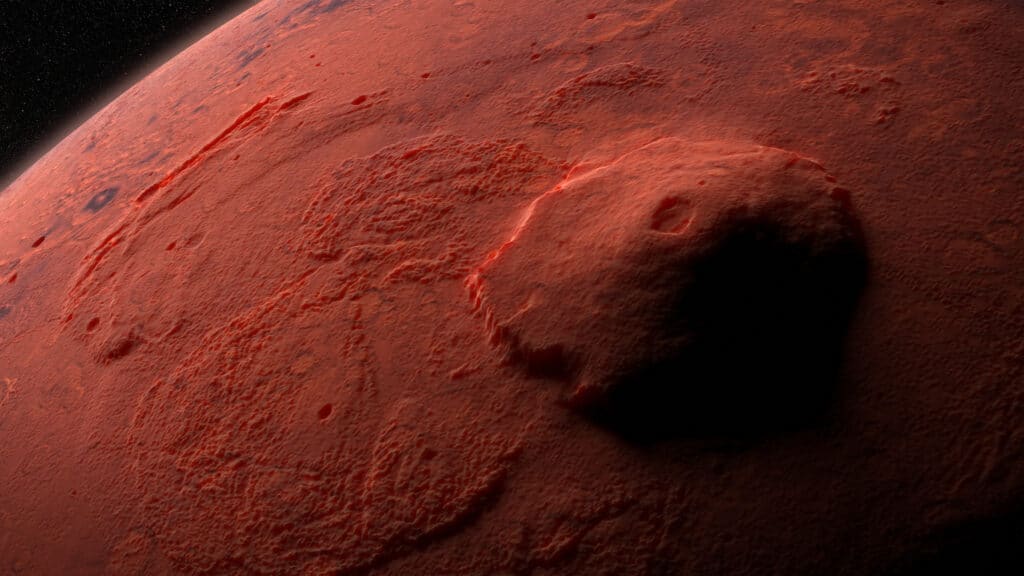
Mars is home to Olympus Mons, the biggest volcano in our solar system. Its base is the size of Arizona.
©Dotted Yeti/Shutterstock.com
Jupiter
Jupiter is the largest planet in our Solar System. It has a complex atmosphere in different layers, so its smell would depend on where you were as you descended through it. You might particularly notice the scents of these three chemicals that together might remind you of a skunk:
- ammonia (wet baby diapers)
- hydrogen sulphide (rotten eggs)
- hydrogen cyanide (bitter almonds)
Jupiter’s wind speeds are 400-800 miles per hour depending on how close you are to the equator (the wind is faster at the poles), so if you want to smell it, smell it quickly.
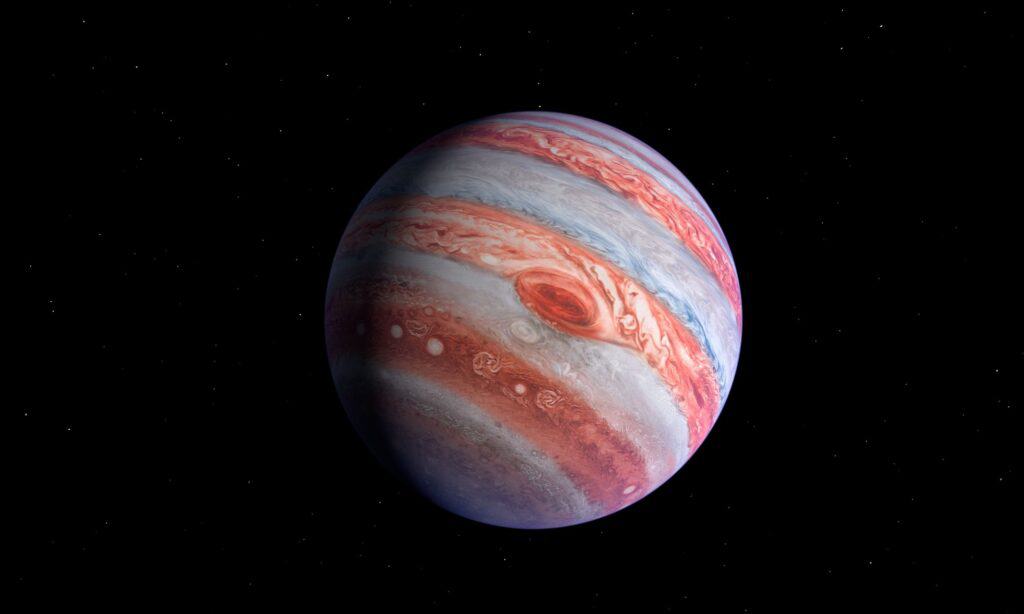
Jupiter offers a choice of at least three different disgusting scents, depending on how far down you go.
©joshimerbin/Shutterstock.com
Saturn
Saturn is often known as the “Ringed Planet” because of its spectacular and complex system of rings made of ice, dust, and meteor chunks. However, we now know that all of the giant outer planets have rings. Though all of the others are smaller, thinner, and fainter than Saturn’s. As far as smells go, Saturn has less to offer. It’s made mainly of hydrogen and helium, which are both odorless gases, so you probably wouldn’t smell anything there.
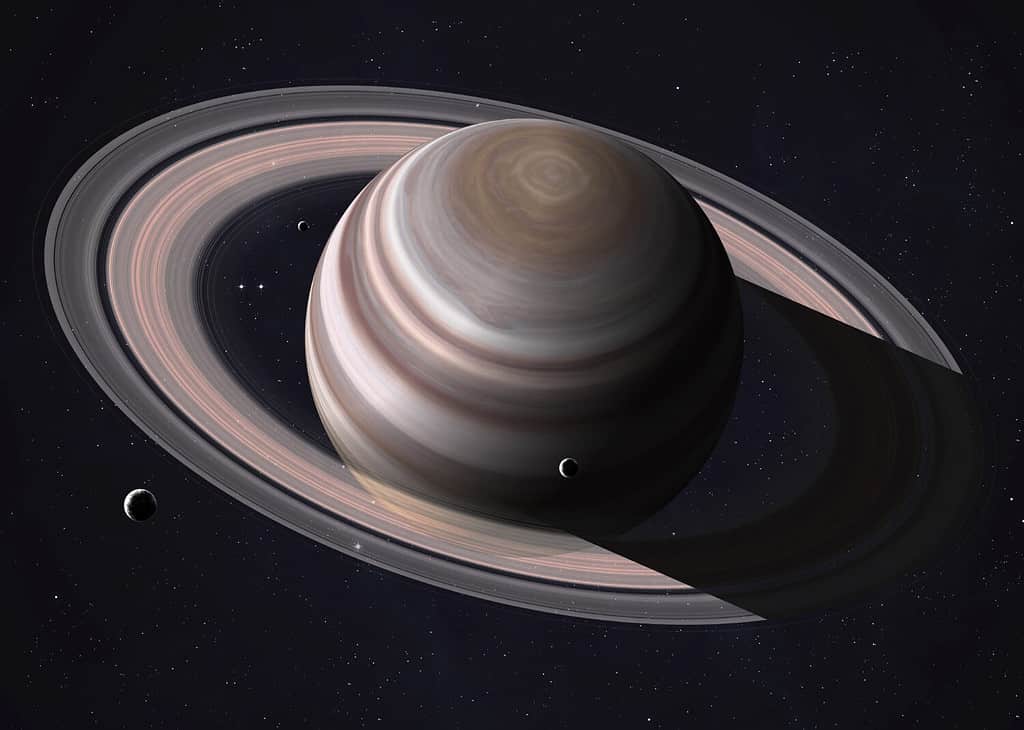
Saturn has no stinky smell.
©Vadim Sadovski/Shutterstock.com
Uranus
When you say the name of this planet, put the emphasis strongly on the first letter: “YUR-uh-nus.” This is considered the correct pronunciation and it prevents juvenile attempts at lowbrow humor, which are always fun, but will not be included in this article. Nor will we allow it to bias the question of which planet has the worst smell.
The upper atmosphere of Uranus is made of hydrogen and helium, both of which are odorless, and about two percent methane, which wouldn’t be detectable in such trace amounts. Traveling to lower levels of the atmosphere, you would encounter hydrogen sulfide, ammonia, and methane, which would give you all those rotten egg and baby diaper smells you’ve come to know and love from other planets on this space voyage.
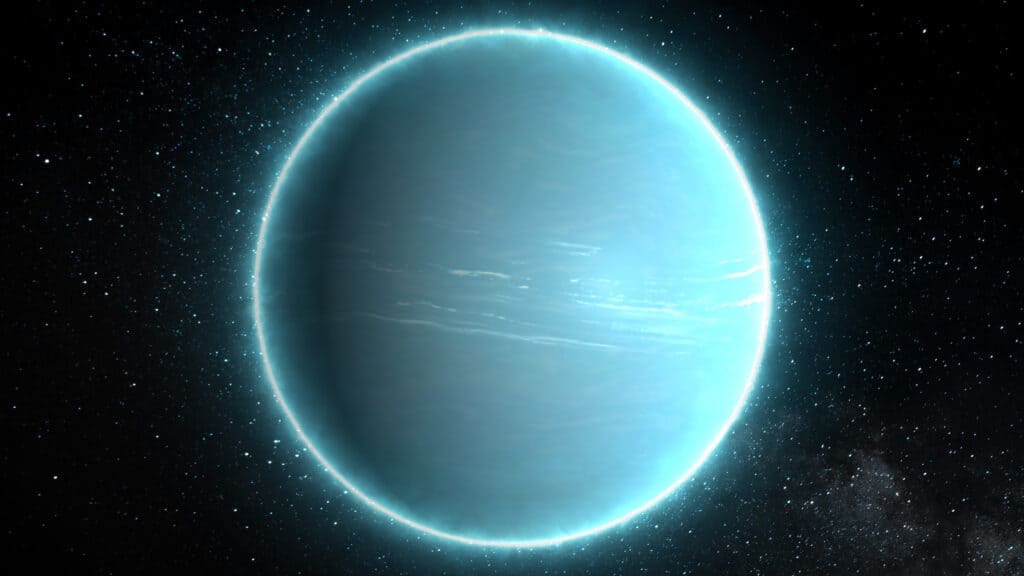
Uranus looks similar to neighboring Neptune. It is light blue and has a faint ring system (not pictured).
©iStock.com/IncrediVFX
Neptune
Neptune is the 8th and last planet of the Solar System. Its vivid cyan-blue color is easily mistaken for water, which contributed to the decision to name it and its moons after mythological water deities. But in fact, that color comes from methane in Neptune’s atmosphere. Interestingly, Neptune’s smell might remind you of seaweed that has washed up on the beach. This is due to the presence of hydrogen sulfide in the atmosphere. But spending time on Neptune would be no relaxing day at the beach. This planet has the highest wind speeds in the Solar System, reaching 1,200 miles per hour!
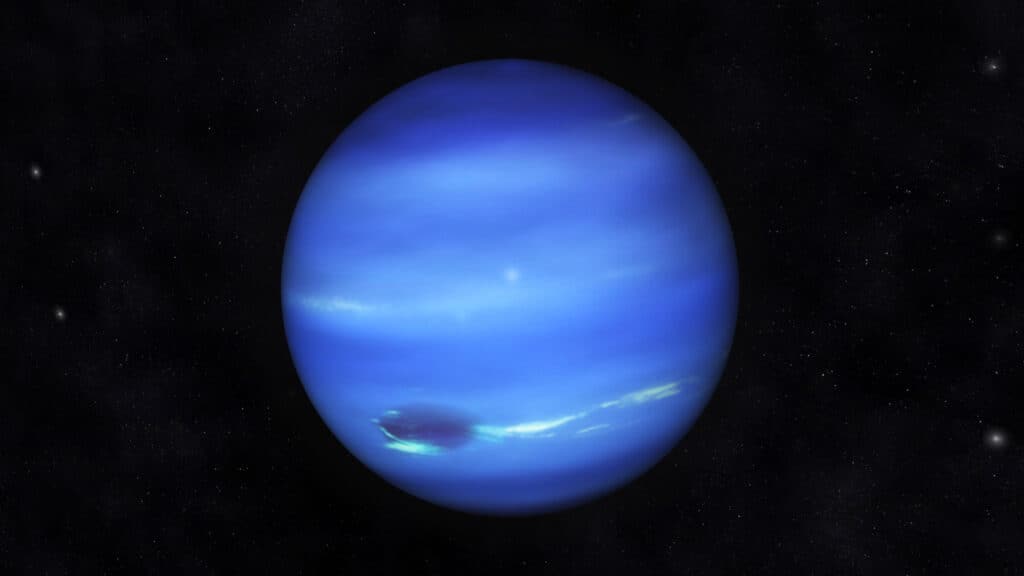
Jewel-like Neptune smells like seaweed, or rotten eggs, or a skunk.
©iStock.com/3quarks
The Winner Is . . .
The official consensus is that the worst-smelling planet is . . . Uranus. (Once again, pronounced, “YUR-uh-nus.”). It smells like washed-up seaweed, rotten eggs, skunks, and human flatulence. (We didn’t make this up. Look it up yourself.) It’s the smell of hydrogen sulfide, a chemical so noxious that people can detect it when it’s just three parts per billion in the air. And this particular planet has enormous clouds of it!
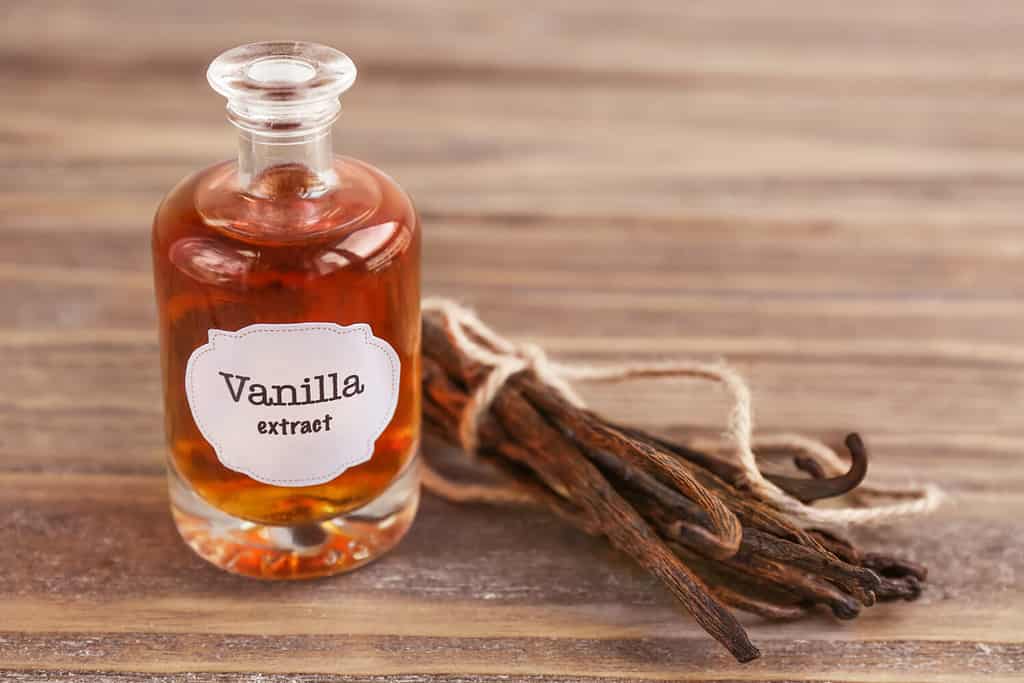
Vanilla is one of the most potent, easily detectible good smells on Earth.
©Africa Studio/Shutterstock.com
Freshening Up the Worst-Smelling Planet
You might be familiar with the lovely scent of vanilla. Science tells us that the scent of vanillin, the main ingredient of vanilla extract, can be detected at just 0.1 micrograms per cubic meter. That’s so strong, that just one or two oil tankers full of vanillin, if dispersed evenly in the air, would be enough to make the whole world smell a little bit like cookies. As for the worst-smelling planet, well, let’s just say it’s going to take a lot more vanilla than that to freshen it up.
The photo featured at the top of this post is © NASA's James Webb Space Telescope. Image processing by Judy Schmidt, Public domain, via Wikimedia Commons – License / Original
Thank you for reading! Have some feedback for us? Contact the AZ Animals editorial team.



